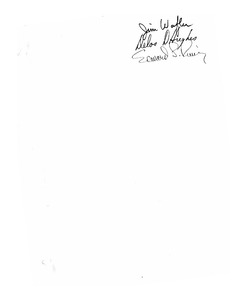| dc.rights.license | In Copyright | en_US |
| dc.creator | Brown, Larry Franklin | |
| dc.date.accessioned | 2023-04-21T19:30:30Z | |
| dc.date.available | 2023-04-21T19:30:30Z | |
| dc.date.created | 1972 | |
| dc.identifier | WLURG038_Brown_thesis_1972 | |
| dc.identifier.uri | https://dspace.wlu.edu/handle/11021/36183 | |
| dc.description | The title page indicates that this is a Senior Thesis in Politics. | en_US |
| dc.description.abstract | The need for electoral reform has been evident throughout Arnerican history, but the problem becomes more crucial as the responsibilities and powers of the Presidency increase more rapidly each decade. . . . The relevant hypotheses which I hope to substantiate are the following: A. William Riker' s model of political behavior is essentially valid when applied to the American electoral system. That is to say, rational political actors seeking the Presidency for their party will attempt to form minimal winning coalitions composed of the larger, more populous states and will ignore the less influential states. Under the rules of the Electoral College, the basic unit for coalition formation is the state; however, all states are not of equal value to coalition-builders, and we can expect the outcomes of Presidential elections to turn on the outcomes in "pivotal'' states. Should the E1ectoral College fail to provide a winner in the general election, we can expect that rational political behavior in the House of Representatives demands winning as the principal value. We can expect considerations of party ideology, Presidential personalities, and abstract concepts such as ''justice" or "equality" to play only a secondary role. B. Assuming Riker's theory to be valid, the direct-vote method of Presidential election is a practical and theoretically defensible
alternative to the present electoral system. That is to say, rational political actors will still attempt to form minimal winning coalitions, but the basic unit of electoral coalition-building would change from the state to groups of people, should the direct-vote method be implemented. [From Introduction] | en_US |
| dc.format.extent | 68 pages | en_US |
| dc.language.iso | en_US | en_US |
| dc.rights | This material is made available for use in research, teaching, and private study, pursuant to U.S. Copyright law. The user assumes full responsibility for any use of the materials, including but not limited to, infringement of copyright and publication rights of reproduced materials. Any materials used should be fully credited with the source. | en_US |
| dc.rights.uri | http://rightsstatements.org/vocab/InC/1.0/ | en_US |
| dc.title | The Great Mistake: The Dysfunctional Electoral College and the Direct-Vote Alternative | |
| dc.type | Text | en_US |
| dcterms.isPartOf | WLURG38 - Student Papers | |
| dc.rights.holder | Brown, Larry Franklin | |
| dc.subject.fast | Electoral college -- United States | en_US |
| dc.subject.fast | Election law -- United States | en_US |
| local.department | Politics | en_US |
| local.scholarshiptype | Senior Thesis | en_US |
